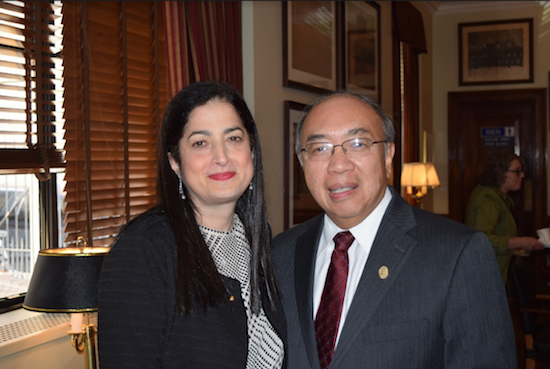Justice Randall Eng offers tips to Brooklyn Women’s Bar Association on ‘How to Become a Judge’

The Brooklyn Women’s Bar Association (BWBA) kicked off its “Lunch with a Judge” series in Brooklyn Heights on Wednesday with Hon. Randall T. Eng, presiding justice of the New York State Appellate Division, Second Department.
“This has been billed as ‘Lunch with a Judge,’ but we have so many judges here that it’s more like lunch with a lawyer,” Eng said jokingly after recognizing the many members of the BWBA who are judges themselves.
The series is designed to help BWBA members get to know judges away from the courtroom atmosphere. It also gives the judges an opportunity to discuss a topic they feel would be beneficial to the Brooklyn legal community. This event was titled “How to Become a Judge,” which Eng discussed, in addition to offering some notes on oral arguments.

Brooklyn Boro
View MoreNew York City’s most populous borough, Brooklyn, is home to nearly 2.6 million residents. If Brooklyn were an independent city it would be the fourth largest city in the United States. While Brooklyn has become the epitome of ‘cool and hip’ in recent years, for those that were born here, raised families here and improved communities over the years, Brooklyn has never been ‘uncool’.